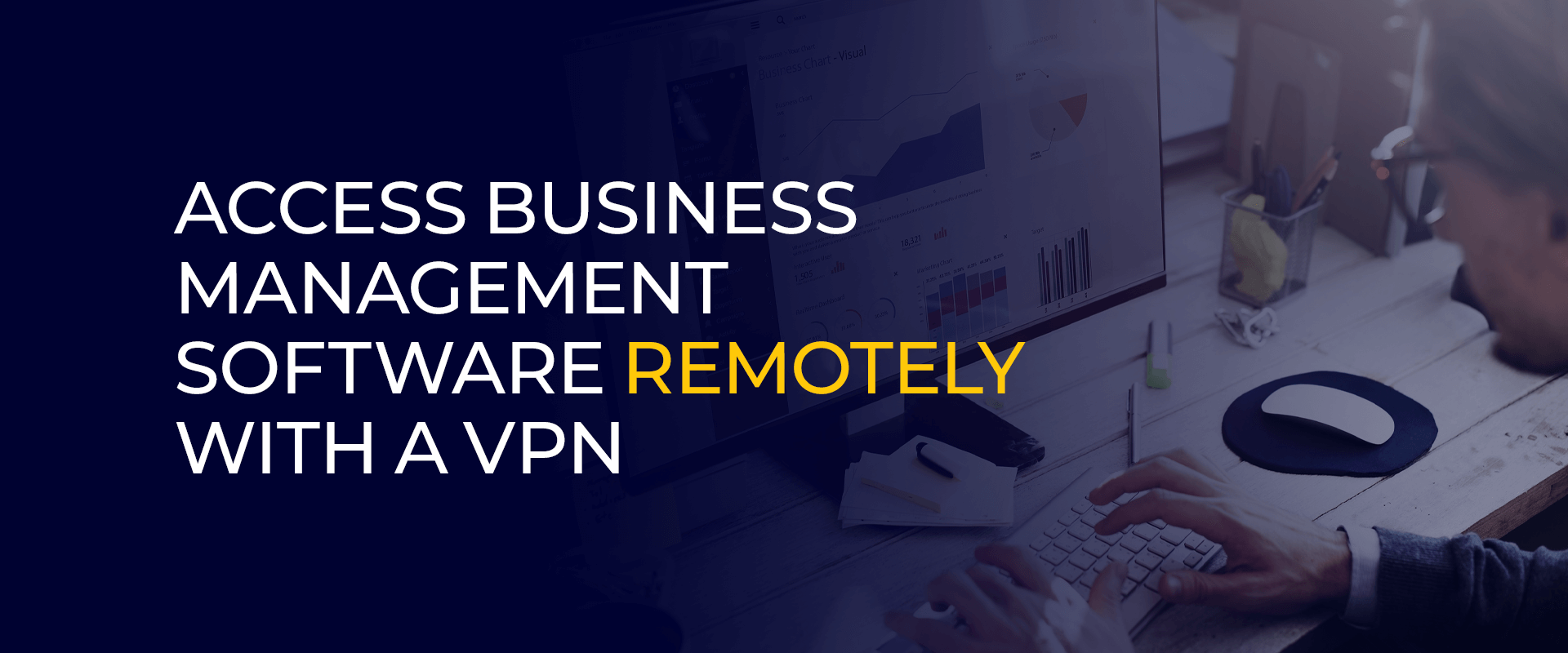

Get 93% OFF on Lifetime
Exclusive Deal
Don’t miss out this deal, it comes with Password Manager FREE of cost.
Get 93% off on FastestVPN and avail PassHulk Password Manager FREE
Get This Deal Now!By Christine Margret No Comments 6 minutes
In today’s digital age, where remote work has become the norm rather than the exception, securing access to vital business management software is paramount for continuity and efficiency.

Virtual Private Networks (VPNs) offer a robust solution—creating secure and reliable connections to business resources from any location in the world. By encrypting data and masking IP addresses, VPNs ensure that sensitive company information remains confidential, mitigating the risks associated with cyber threats.
This article will explain:
A VPN, or Virtual Private Network, is a technology that establishes a secure connection between two networks over the internet. It creates an encrypted tunnel for data to pass through, ensuring privacy and preventing unauthorized access. This allows employees to securely connect to their company’s network from outside locations.
VPNs use various protocols such as PPTP, L2TP/IPsec, and OpenVPN to establish the encrypted connections. They also use authentication methods like passwords, digital certificates, or biometric data to verify user identities.
Using a VPN for remote access can have numerous benefits for businesses, including:
By encrypting data and hiding IP addresses, VPNs provide an extra layer of protection against cyber-attacks. This is especially crucial when employees are accessing business management software from public networks.
VPNs allow employees to securely access company resources such as files, databases, and applications from anywhere in the world. For example, an employee can work from home and still have access to the company’s intranet.
With a VPN, businesses can avoid the expenses of setting up and maintaining a physical network infrastructure for remote access. This can save them money in the long run. Big companies with a large remote workforce can save thousands of dollars annually by using a VPN.
By providing employees with secure and easy access to company resources, VPNs can enhance productivity. Employees can work from anywhere, at any time, without worrying about security risks. This can also lead to greater job satisfaction and work-life balance for employees.
VPNs allow businesses to have better control over who can access their network and what resources they can access. Access can be restricted based on specific criteria, such as user roles or IP addresses. This adds an extra layer of security and helps prevent data breaches.
Flexible VPN software tools make it effortless to incorporate new users or groups into networks. This is particularly advantageous for businesses experiencing rapid growth without expanding their budgets. With these tools, you can expand network footprints and scale without the need for additional components or complex network configurations.
According to a report by Grand View Research, the global VPN market size is expected to reach $107.5 billion by 2027. This growth can be attributed to the increasing demand for secure remote access solutions by businesses of all sizes.
Moreover, with the rise of remote work and cloud-based services, the need for reliable and secure VPNs has become even more crucial.
Among the numerous medium-sized tech companies that rely on VPNs for their businesses, a few stand out for their innovative use of this technology:
1. Vcita
This platform specializing in small business management relies heavily on VPNs to secure sensitive client data and to ensure that remote teams can collaborate safely and efficiently and access the platform’s resources securely.
2. Buffer
As a social media management tool, Buffer uses VPNs to maintain the confidentiality and integrity of the vast amounts of social media information that flow through its servers daily. This is crucial for maintaining the trust of their customers and complying with privacy regulations.
3. Zapier
Known for connecting different apps and automating workflows, Zapier leverages VPNs to protect the transfer of data between services, ensuring that user integrations are safe and reliable.
4. Asana
As a project management tool, Asana relies on VPNs to secure sensitive project data and communication between team members. This allows for remote collaboration without compromising the confidentiality and security of important company information.
Implementing a VPN for remote access is relatively straightforward. Businesses can either set up their own VPN server or use a third-party service provider. The steps to implement a VPN are as follows:
Implementing a VPN for remote work is an essential step for businesses looking to protect their data and ensure secure remote access for their employees. It not only protects sensitive information but also provides the added benefit of allowing employees to work remotely without compromising security.
By following the steps outlined above and staying vigilant in maintaining and updating the VPN, businesses can ensure a safer and more efficient remote working environment. Additionally, businesses should also consider implementing other security measures such as firewalls, antivirus software, and employee training to further enhance their overall cybersecurity strategy.
With these measures in place, businesses can confidently embrace remote work without worrying about data breaches or cyber-attacks. It ultimately leads to increased productivity, flexibility, and cost savings for both the business and its employees.
Take Control of Your Privacy Today! Unblock websites, access streaming platforms, and bypass ISP monitoring.
Get FastestVPN
© Copyright 2024 Fastest VPN - All Rights Reserved.


Don’t miss out this deal, it comes with Password Manager FREE of cost.
This website uses cookies so that we can provide you with the best user experience possible. Cookie information is stored in your browser and performs functions such as recognising you when you return to our website and helping our team to understand which sections of the website you find most interesting and useful.
Strictly Necessary Cookie should be enabled at all times so that we can save your preferences for cookie settings.
If you disable this cookie, we will not be able to save your preferences. This means that every time you visit this website you will need to enable or disable cookies again.


